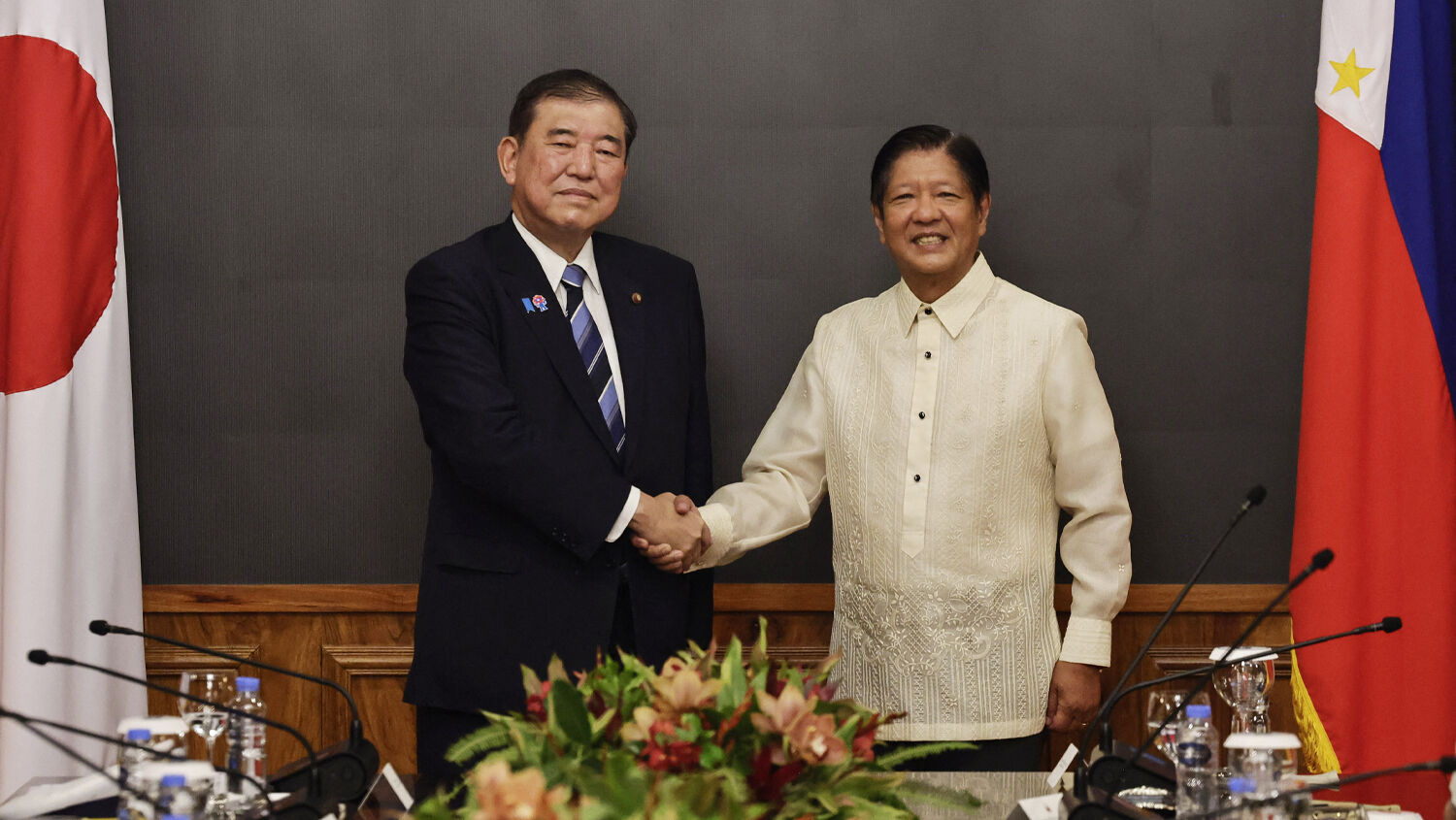
Japan Attempts to Build Anti-China Alliance—Will It Work?
In many ways, the United States and China are in a cold war. Each powerhouse is racing to gain the upper hand in weaponry, finances, influence and prestige.
In this struggle, allies are all-important. Neither nation can stand up to the other alone, and the U.S. holds the advantage. Though China has gained allies through projects like the Belt and Road Initiative, America’s Cold War victory against the Soviet Union made it the unopposed policeman of the world. It was undoubtedly the world’s greatest superpower, and nations wanted to be America’s friend. These friends largely stayed on the same side for decades.
This has helped the U.S. against China because many of these allies are in strategic areas around China. America’s relationships with Japan, Taiwan, South Korea, Thailand, the Philippines and India have been essential in keeping China from running roughshod over the region.
But President Donald Trump’s tariffs on the world have made many historic U.S. friends doubt America’s reliability and question its priorities. Stories of major American allies cozying up to China have dominated the headlines. But that is not the only trend emerging in light of these tariffs.
Many Chinese enemies, though concerned about America’s unreliability, are balking at switching to China’s side. Some Asian nations are trying to build their own blocs—separate from the U.S.—to combat China. These efforts are being led by the Land of the Rising Sun.
Japan’s New Bloc
For decades, Japan has had strong ties with the U.S. and strong animosity toward China. Since American soldiers occupied Japan after World War ii, it has aligned with the U.S. against the Soviet Union and China. Japan has many grievances against China. China wants a sincere apology for the war crimes Japanese soldiers committed against hundreds of thousands of Chinese citizens in the 1900s. Though Japanese leaders have apologized, China sees these as illegitimate because Japan still writes revisionist textbooks about the war and honors shrines dedicated to these war criminals. Further contention is sparked by factors such as both nations claiming the Senkaku Islands.
Chinese and Japanese nationalism is rising, causing increasing animosity. Former Japanese Prime Minister Shinzo Abe, who left office in 2020, was a major player in ridding Japan of guilt for World War ii. His time in office saw a notable rise in Japanese nationalism, which corresponded with a rise in its military power. Japan is moving on from its postwar pacifism and plans to spend up to 2 percent of its gross domestic product on defense spending by 2027. This rise in nationalism—in conjunction with the covid-19 pandemic—has caused greater animosity toward China.
Similar trends are seen in China, causing more anti-Japan sentiment.
Because of this, Japan will not submit readily to Chinese hegemony. Instead it is working on an anti-China bloc by strengthening relationships formed in the past few decades. For years, Japan has fostered alliances in the region by funding ports, railways and power grids in nations like Indonesia, Malaysia, Vietnam and the Philippines, portraying these actions as an alternative to China’s Belt and Road projects.
In addition, Japan is working to increase military and intelligence cooperation with like-minded neighbors. It is donating patrol vessels and cutting-edge radar systems to the Philippines and Vietnam to help them stand up to China’s illegal activity in the South China Sea.
In late April, Japanese Prime Minister Shigeru Ishiba traveled to Vietnam and the Philippines to build stronger economic and security ties. A deal between Japan and the Philippines, announced on April 29, will increase the number of joint exercises with the U.S. and speed up the process of sharing defense equipment and organizing military exercises. Japan is also increasing military and intelligence dialogue with South Korea.
Will It Work?
If Japan is to combat China largely without the U.S., it has a tough road ahead. China’s and America’s blocs in this new cold war have developed over decades. Making a new bloc that can replace America before China takes advantage of President Trump’s unreliability will be difficult—almost impossible.
Though there are several anti-China powers in the region that would love to join a Japan-led bloc, this would not be enough. To garner the power needed, Japan will likely need to convince some nations aligned with China to switch sides. The gap left by the U.S. seems insurmountable.
Another factor seems to predict failure for this attempted bloc. Japan is also cozying up to China in some notable ways, particularly in trade, showing a willingness to compromise. It seems only a major tragedy or similar event could unite the two powers. Under these circumstances, nations like the Philippines would be faced with the choice of either joining China or standing alone against an overwhelmingly powerful coalition. It could turn to the U.S. for help, but losing Japan’s allegiance would strike a major blow to America’s power geographically, economically and militarily. America’s growing isolationism is an ominous sign for nations like the Philippines.
Japan’s attempts to combat China by making an anti-China alliance without the U.S. seem doomed to fail—and that is exactly what the Bible says will happen.
Several Bible prophecies show how Asia will soon unite to create the greatest military superpower this world has ever seen. Ezekiel 38 and 39 show this superpower will be led by Russia, with China second in command. (This is explained in our free booklet Russia and China in Prophecy.) Several other Asian peoples are listed in these chapters, including “Gomer” and “Togarmah,” indicating modern Japan. “Tarshish” in companion Bible passages also indicates Japan. Isaiah 23:1-2 refer to its people as “inhabitants of the isle,” and other prophecies foretell of “the ships of Tarshish.”
Japan’s anti-China efforts today may bear short-term fruit, but these prophecies show Japan will eventually fall under Russian and Chinese hegemony.
To learn more, read our free booklet Russia and China in Prophecy.
